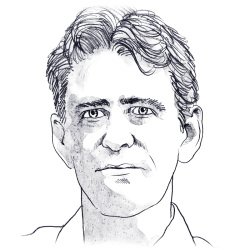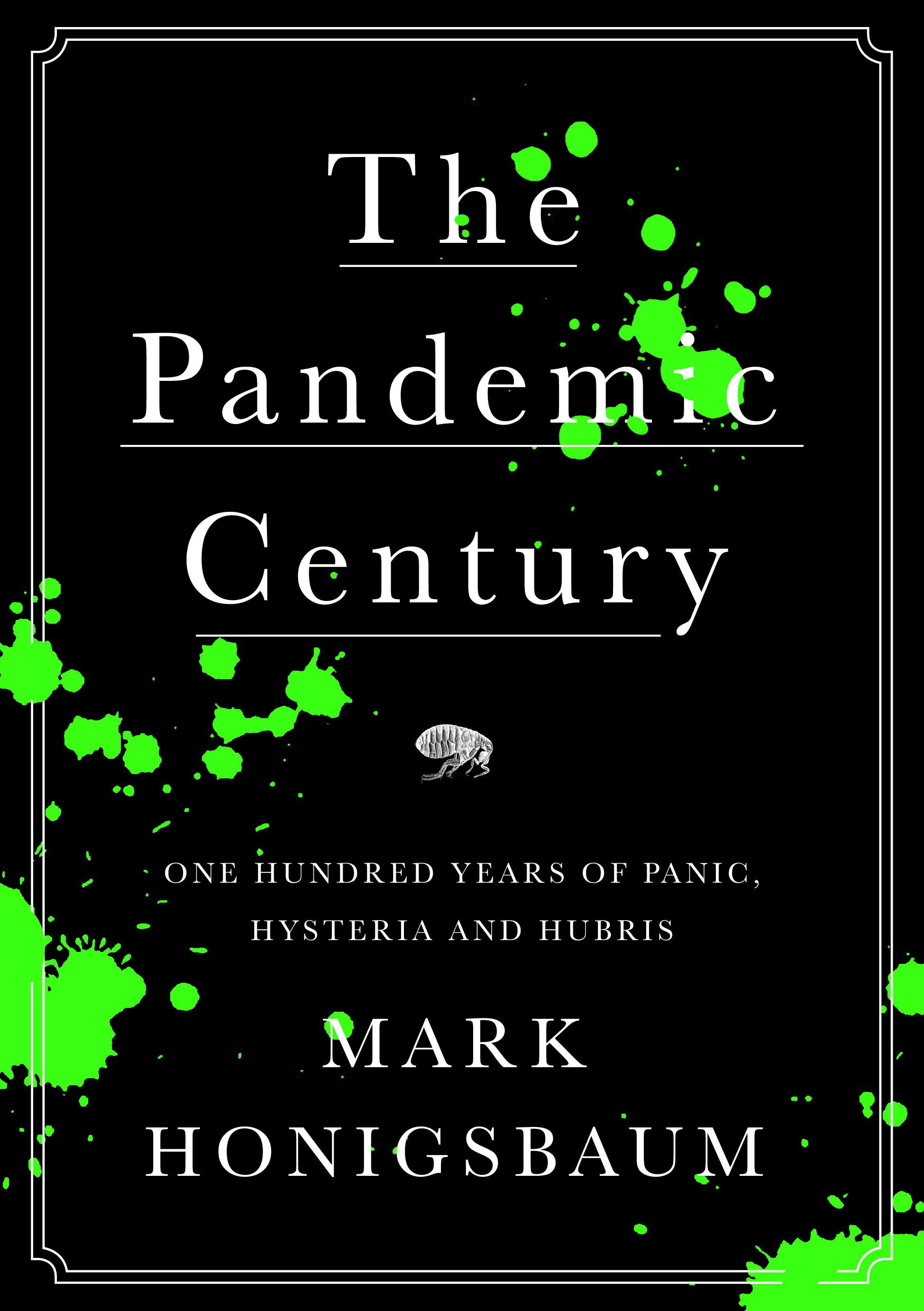THE PANDEMC CENTURY:
One Hundred Years Of Panic, Hysteria And Hubris
New York: Norton; London: Hurst, 2019
Buy the UK edition
Buy the US edition
FINANCIAL TIMES: “HEALTH BOOK OF THE YEAR” (2019)
THE TIMES: SCIENCE BOOK OF THE YEAR” (2020)
IRISH TIMES: “BEST BOOKS OF 2020”
What’s It About:
Ever since the 1918 Spanish influenza pandemic, scientists have dreamed of preventing catastrophic outbreaks of infectious disease. Yet, despite a century of medical progress, viral and bacterial disasters continue to take us by surprise, inciting panic and dominating news cycles.
From pneumonic plague in LA and ‘parrot fever’ in Argentina to the more recent AIDS, SARS and Ebola epidemics, the last 100 years have been marked by a succession of unanticipated outbreaks and scares. Like man-eating sharks, predatory pathogens are always present in nature, waiting to strike; when one is seemingly vanquished, others appear in its place. The Pandemic Century exposes the limits of science against nature, and how these crises are shaped by humans as much as microbes.
What The Critics Say:
“riveting, vivid history of modern disease outbreaks … a fascinating account of a deeply important topic” - Robin McKie, The Observer
“So vivid [it'] had me drafting movie treatments in my head” - Carl Zimmer, New York Times Book Review
“[Honigsbaum” is a compelling storyteller: the rise of HIV, ebola, Sars, parrot fever, plague and Covid-19 are presented with the pace and intrigue of crime fiction” - The Times (London)
“Lively, gruesome, and masterful . . . mixes superb medical history with vivid portraits of the worldwide reactions to each [pandemic] event.”— Kirkus (starred review)
“Offers a mixture of gripping storytelling and insightful science . . . alternately chilling and optimistic, Honigsbaum’s reporting on a recurrent public health issue deserves wide attention.”— Publishers Weekly
“Engrossing. . . . Combining history, popular science, and policy, he describes each pandemic with journalistic immediacy, emphasizing the patterns that characterize responses to them. . . . An important and timely work.” — Booklist (starred review)
“Gripping narrative [that] ranges from the psittacosis pandemic of the late 1920s to the Ebola crisis of 2014.” – Nature
“… a lively account of scares both infamous and less known, Mark Honigsbaum combines reportage with the history of science and medical sociology to artfully reconstruct epidemiological mysteries and the ecology of infectious diseases.” – Paste magazine.
“Unfailingly fascinating reading” – Open Letters Review
“A lively read … for those on exotic travels” - Anjana Ahuha, Financial Times
“One of the key themes of Honigsbaum’s timely but disturbing book is that human interference with nature has made outbreaks of deadly infections inevitable… We place too much trust in medicine, but this complacency is not shared within the scientific community” – Mail on Sunday 4* review
‘Engagingly balances science with politics and culture. A solid read for anyone interested in medicine or even a good mystery.’ – Library Journal
‘An engaging and thoughtful journey through some of the world’s greatest medical and social crises in recent decades. Honigsbaum is a worthy historian and guide to these dramatic reminders of human fallibility.’ — David L. Heymann, Professor of Infectious Disease Epidemiology, London School of Hygiene and Tropical Medicine
‘Infectious diseases remain among the most urgent health threats we face, but too often are considered something that happens to other people, far away. In our interconnected world, this is no longer true, as Honigsbaum shows. His unique account drives home the human impact of epidemics, and the need for increased preparedness.’ — Jeremy Farrar, Director of the Wellcome Trust
‘Mark Honigsbaum does a superb job covering a century’s worth of pandemics and the fears they invariably unleash. The moral of his cogent tale is that the next deadly pandemic is not a matter of “if” but of “when” and preparing for that fact is a far better prescription than reacting with panic, fear, or indifference.’ — Howard Markel, Distinguished Professor and Director, Center for the History of Medicine and Professor of Pediatrics and Communicable Diseases, University of Michigan


